One thing you’ve worked on lately?
Being OK with vulnerability. It’s one of the things I’ve probably learned the most from being a founder, strangely enough.
OK, how’s this—tell me about the darkest time in your life.
Throughout my life, you could say that I’ve been a serial overachiever. I went to Duke, worked in management consulting, and then was one of the first employees at an exciting education startup.
But at one point, I started working remotely, and suddenly, everything went south. I found myself in this never-ending cycle of procrastination, just filling my time with busy work and avoiding hard tasks. It was really bad. I almost got fired.
At the time, I just couldn’t comprehend how I had even gotten to that point. I was completely lost. This isn’t who I was, I'd think. This isn’t who I’ve been. How did this even happen?
Figuring out the answers to those questions was both humbling and illuminating.
Maybe I wasn’t as strong as I always thought I was.
Part of the answer came from realizing just how supported I’d been most of my life. That I’d been put in this environment that set me up to succeed—whether that was being surrounded by my family and friends or being in a hyper-accountable workplace like management consulting.
When I moved to India and worked from home, I was left completely to my own devices, and everything fell apart. That formula and structure for success vanished.
And so figuring out how to recreate that environment for myself independently—an environment that set me up to be the best possible me—and understanding the effort and struggle that that process requires is how I ended up where I am now.
That journey is fundamental to how we think about Focusmate.
What’s your secret sauce?
A helpful insight that I picked up during my time as an executive coach is the idea of self-efficacy. It’s essentially a person’s belief in their ability to achieve their goals.
And the process for developing that can start as simply as acknowledging yourself when you do something. I think sometimes we underestimate those lingering voices in our head. When start to consistently self-affirm, you start to change that narrative in your head—and eventually, your identity.
Suddenly, you’re standing a bit taller. You’re more confident tackling life’s challenges. You’re following through more consistently.
That spills out into the rest of your life.
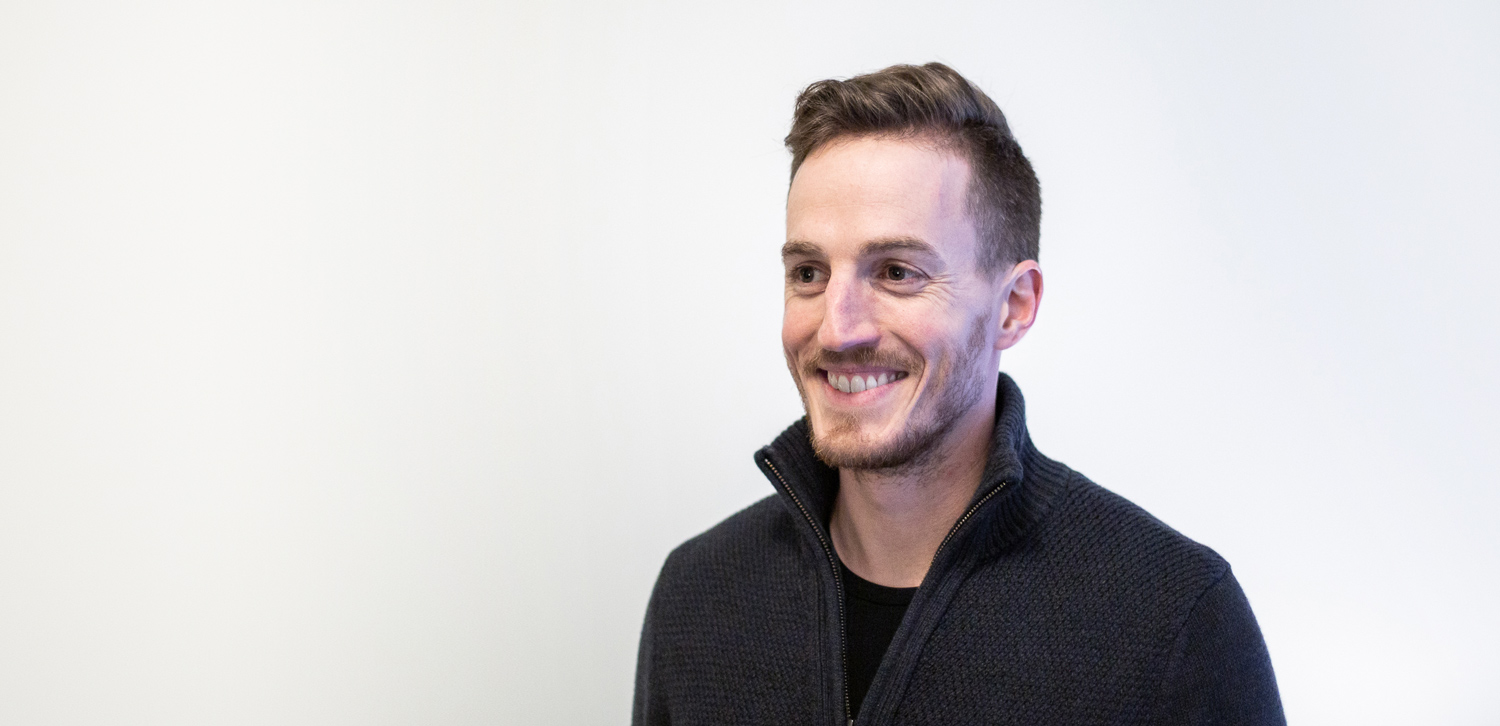
Who is someone that’s changed your life?
My friend Dave. I remember trying out for the baseball team in middle school. At one point, we were instructed to run around the bases at speed. My time tied for last. I couldn’t believe it.
I came in thinking I was a bit of an athlete, and I left realizing I was just this chubby 12-year old. You’re in seventh grade. You’re trying to talk to girls. It was a soul-shattering experience.
So later, I hit up Dave and I’m like, hey, let’s join the cross country team. Dave’s the kind of guy who’s down for anything. I don’t think I would have shown up for that first meet and greet had it not been for Dave being there with me.
Eventually, I was able to run an entire cross country loop. I was by no means fast or anything, but I also was no longer the slow, chubby kid at baseball tryouts. I lost a bunch of weight, gained confidence, and throughout high school, Dave and I were running buddies.
As it turns out, we’d end up doing a whole bunch of cool stuff together over the ensuing years. Actually, he’s in New York and we still run together. So that failed baseball tryout ended up being this formative experience. It served as a foundation for things like getting into Duke, locking down a job as a management consultant, and today, building my own business.
And it all started with having a friend like Dave holding me accountable.
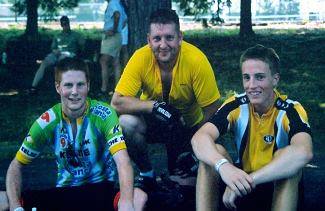 Dave is on the left
Dave is on the leftWhat’s your kryptonite?
I know that it’s a necessary evil for so many people and I respect that, but if I’m being honest, I think commuting is just a sad waste of human potential—speaking as someone who has been there and done that.
You wake up, feeling energetic, ready to take on the world. Then you get on a crowded subway or bus or you’re stuck in traffic.
And if you were in Mumbai like I was when I was working for Teach for India, you’re also dealing with 100+ degree weather. You end up wasting all this time, but worse, it kills your mental wellbeing.
I think many of us are better off working remotely so we can channel that time and energy elsewhere.
If I’m being honest, I think commuting is just a sad waste of human potential
You posit the question—how do we get people to do “hard” things? What makes things “hard” to do?
Vagueness is very intimidating. Things that are “hard” to do are usually complex tasks that are a bit more ambiguous. They require a mesh of potentially divergent skills. They require intense effort and focus.
Because of that we develop the idea that we’re bad at hard things, so we avoid them even more.
What was the last “hard” thing you did?
I just wrote an open letter to the Focusmate community. Hard, because of how closely intertwined the personal and the professional are with something like that, and also in terms of how much I care, how much I want to do right by the people using our product.
OK, be honest. Did you use Focusmate to make that happen?
Haha, I use Focusmate every day! Looking back, my family and my friends, my community and my workplace—all of that has been pivotal to my success. It’s also the thing that’s missing when you’re working remotely or working on your own thing.
For me, Focusmate is like having your own personal tribe of coworkers where you’re invested in each others’ success.
Because community—particularly one invested in one another’s success and grounded in accountability—is such an important part of any person’s life. But it’s also one of the things that’s—by definition—hardest to recreate on your own.
What’s your ultimate life hack?
We’re creatures of habit, but we’re also creatures of habitat. We’re tribal animals and we adopt the norms of the people we spend the most time with.
So I truly believe that hacking your physical and social environment is the ultimate life hack.
There’s all this research being done in the field of epigenetics—which is essentially the study of gene expression versus actual changes in genetic code.
What they’re finding is that certain genetic traits are only unlocked under certain environmental or behavioral situations. In other words, we can literally change our genes by changing our environment.
Given that, what’s your personal workspace like?
I always make sure that I have great light in a quiet environment. Beyond that, I need fast internet and a big screen or two. I’ve got one of those $600 ergonomic chairs, which I found for $130 on Craigslist, but I also have a rocking chair so I can take a nap or read.
And I’ve always got a big water cup on my desk so I can stay hydrated without getting up as much. One of my sneaky tricks is that I keep a couple coasters on my desk—which is glass so the coasters aren’t actually necessary. They remind me when the cups aren’t there.
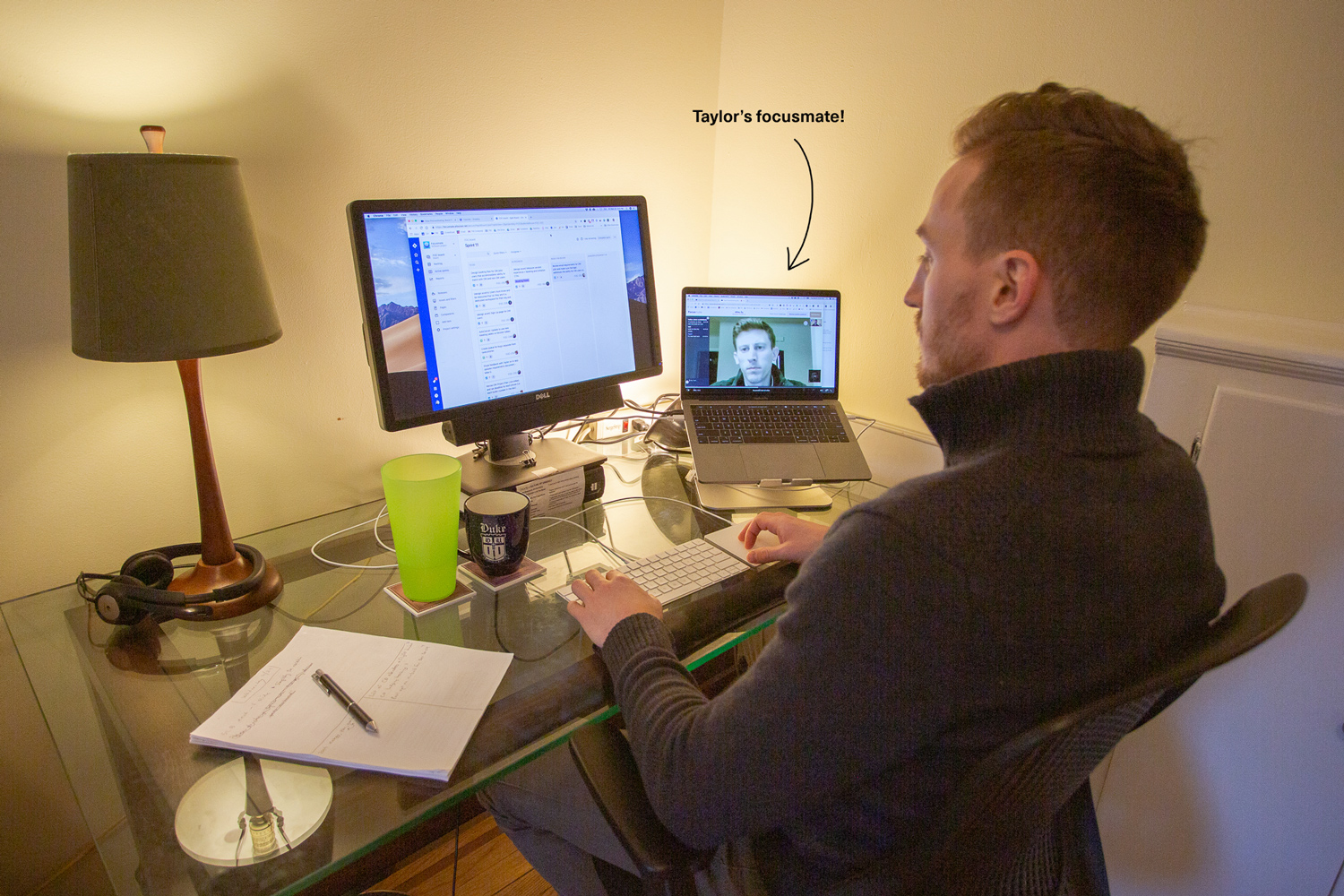
What are the workspace items you can’t live without?
- A great chair, like this one from Knoll Generation
- A laptop stand for my desk (I like mStand by rain design)
- A big water cup
- A big second monitor to supplement my laptop
- A fast laser printer to quickly and painlessly print out a doc that I want to annotate by hand. (I reuse printer paper to write my daily todo list.)
- A big stack of recycled printer paper. I use this to create a new to-do list every day, and to sketch out ideas when I’m brainstorming.
- A clean, spacious desk and good light. The functionality and aesthetic of my workspace help me feel mental clarity and good energy when I sit down.
The functionality and aesthetic of my workspace helps me feel mental clarity and good energy when I sit down.
Is there an idea that needs to be debunked?
Don’t be afraid to ask for help. Especially here in America, we put this idea of rugged individualism on a pedestal—the cool, stoic, loner cowboy in the Wild West. We make resisting help seem glamorous, like you’re a better person if you do things the hard way.
But really, you’re just compromising your own ability to achieve your goals, to reach your potential.
What are some of the books that have shaped the way you think and live life?
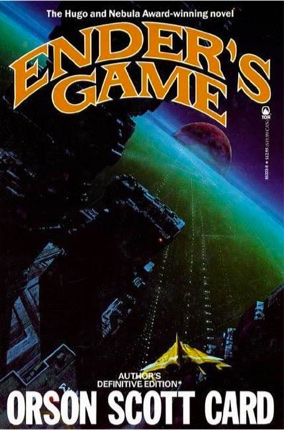
Ender’s Game by Orson Scott Card—Even though the context is a little dark, I love the idea that a kid can be a leader and change the world by being smart and determined. I read this in middle school and again in my 20s and loved it equally both times.
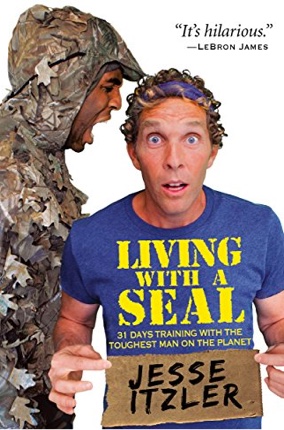
Living with a SEAL by Jesse Itzler—Itzler, an entrepreneur, invites a Navy SEAL, David Goggins, to live with him and train him for 30 days. Transformation (for Jesse) and hilarity (for the reader) ensues. It’s a powerful testament to the power of our environment and our minds to shape what’s possible.
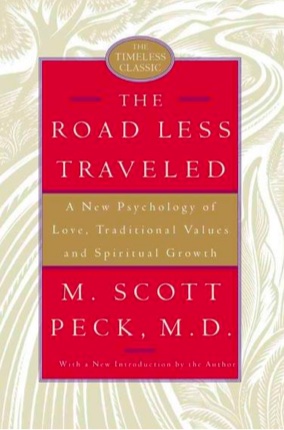
The Road Less Traveled by M. Scott Peck—The book opens, “Life is difficult.” Peck, a brilliant psychologist, illustrates how much anguish stems from our reluctance to embrace this fact and how everything good in life stems from earnest hard work and commitment to personal growth.
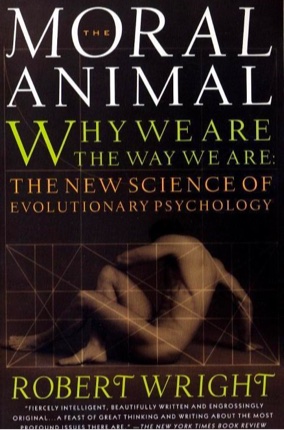
The Moral Animal by Robert Wright—We like to moralize human behavior and preferences, but the truth is that so much of it actually boils down to evolutionary psychology. We are the way we are because certain psychological traits are evolutionarily superior. Elucidating and fun to read.
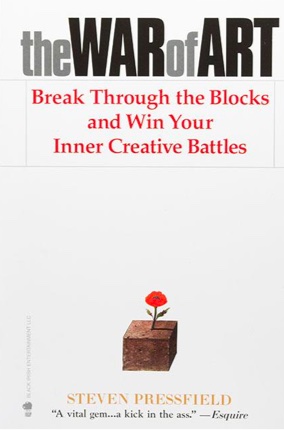
The War of Art by Steven Pressfield—A practical and fun guide to overcoming internal blocks and putting your best work out into the world.
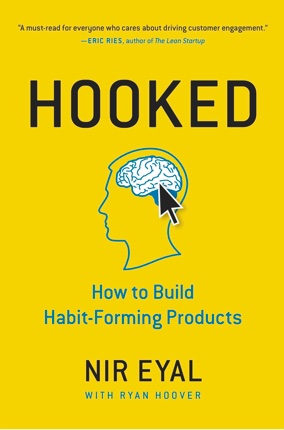
Hooked: How to Build Habit-Forming Products by Nir Eyal—Quintessential reading for product strategy.
What are 5 apps you love and use regularly?

- Superhuman—I have a lot of email and doing everything with hotkeys saves a ton of time.
- WorkFlowy—A fast, flexible to-do list app with a filter feature that lets you toggle between useful views quickly.
- Slack—Keeps our team dialogue flowing without opening email.
- Google Drive—Fast document creation, sharing, collaboration, and search.
- WhatsApp (and SMS) for desktop—One less reason to reach for my phone.
What does your phone home screen look like?
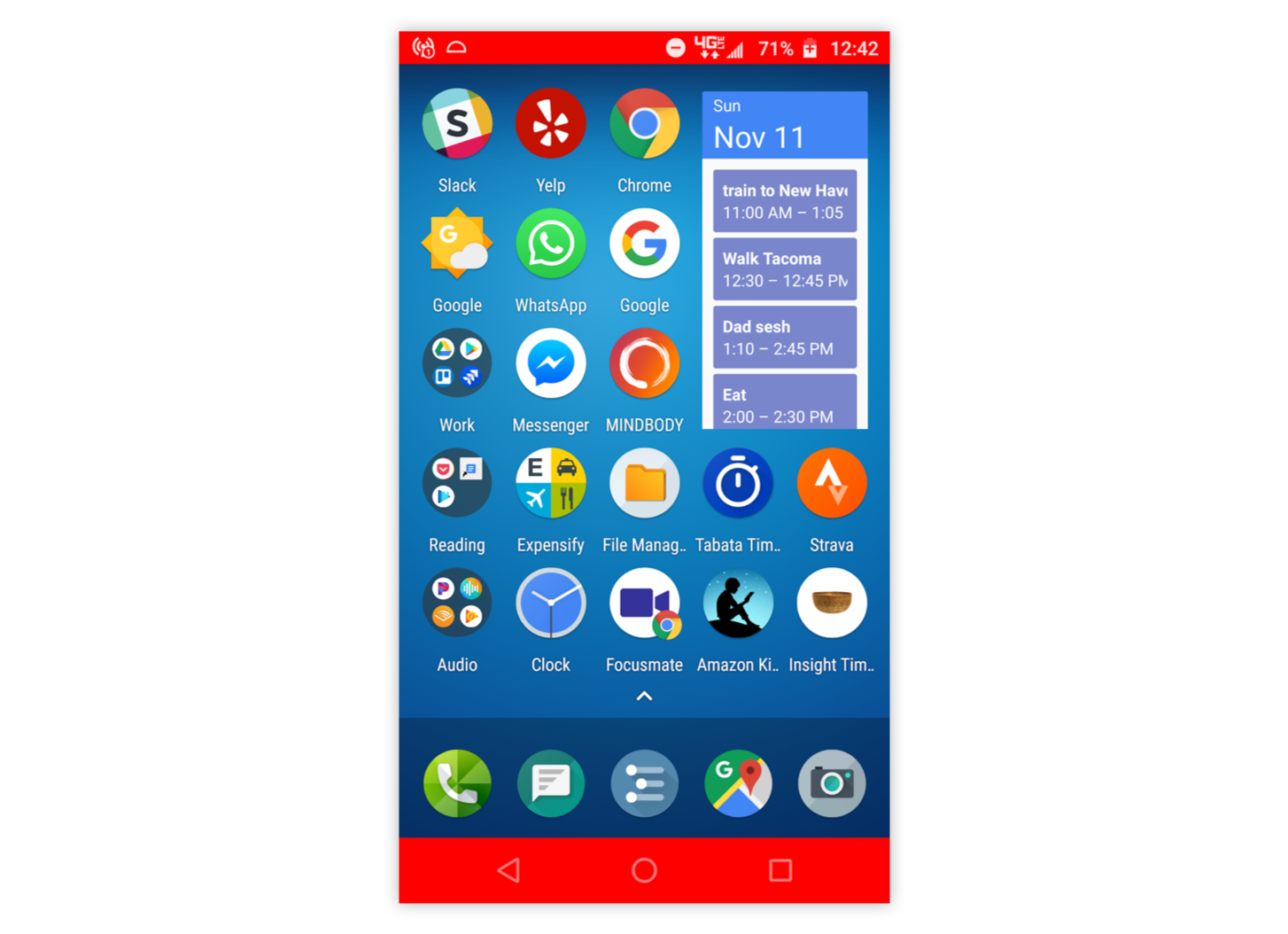
The thing you’re looking forward to the most?
One of the challenges of the startup life—especially when you’re on a two-man team like I am while working remotely—is that you have to create a bit of structure for social interactions.
So in January, we’re having a weekend thing with the boys. It’s a bit of a ritual. Last year, we all went to Colorado, which is beautiful.
It’s gonna be good.







 Oops! We couldn’t find any results...
Oops! We couldn’t find any results...





